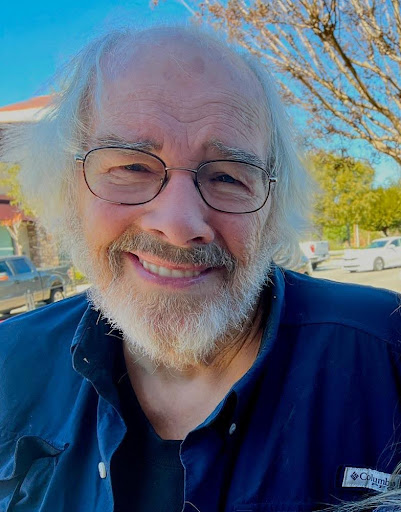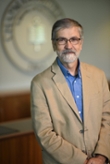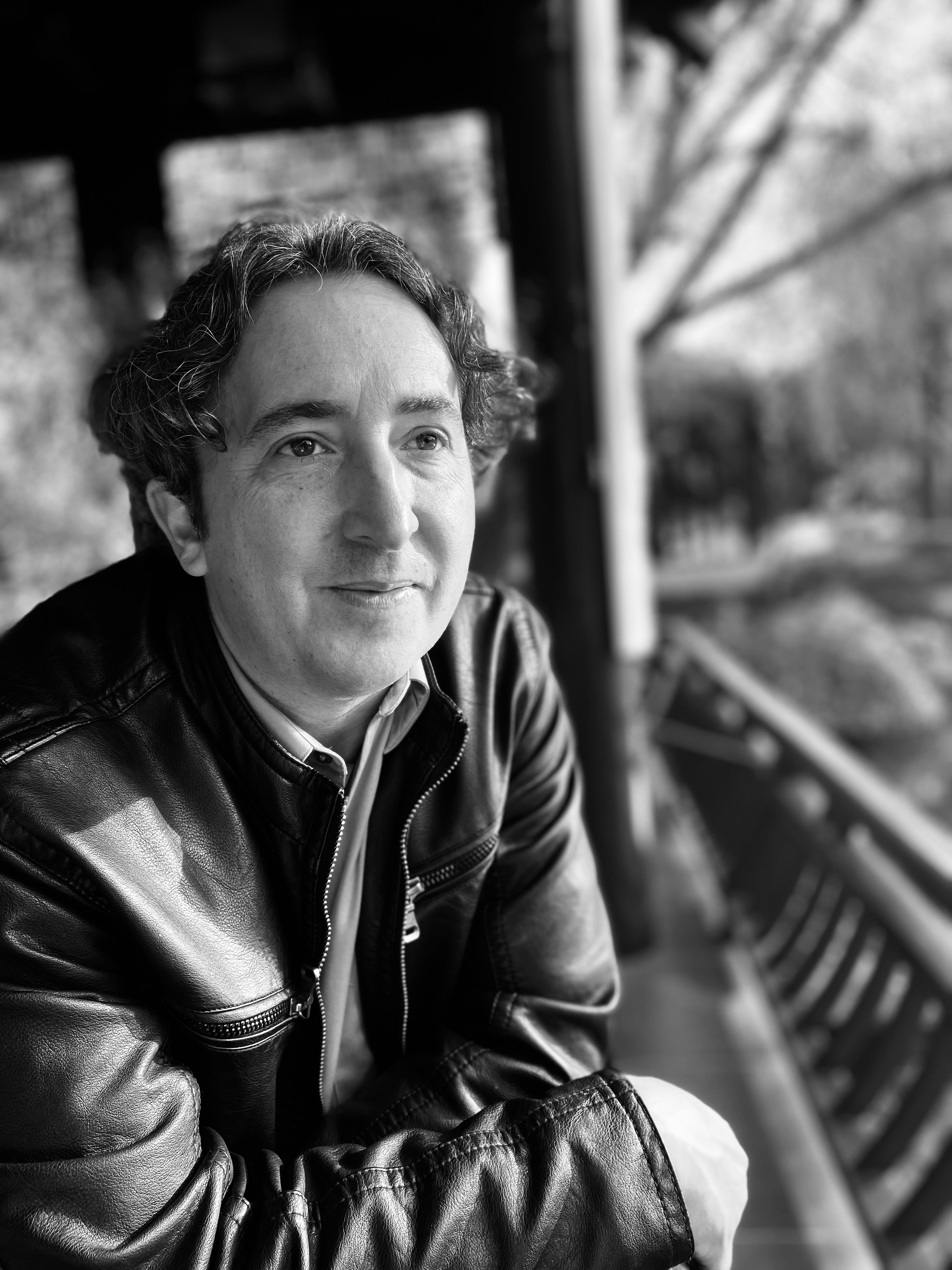
Founding Director
Federico Pacchioni
A native of Emilia-Romagna, Italy, Federico Pacchioni graduated from the "Istituto Magistrale Immacolata" in Cesena in 1998 and completed his undergraduate studies at La Sapienza in Rome and Prescott College, Arizona, pursuing a unique academic path focused on the development of a humanistic, cross-cultural, and experiential pedagogy. Dr. Pacchioni’s early interests in education went hand-in-hand with his studies in literature and film, eventually leading to his Ph.D. in Italian Studies from Indiana University Bloomington in 2010. After holding posts at the University of Connecticut-Storrs and the Italian Immersion School of Middlebury College in Vermont, he won, in 2012, the Sebastian Paul and Marybelle Musco Endowed Chair in Italian Studies at Chapman University in Orange, California.
At Chapman University, he teaches interdisciplinary courses in Italian Studies, the Dodge College of Film and Media Arts, and the University Honors Program, including several travel courses across the Italian peninsula. From 2012 to 2023, he directed the Italian Studies program, expanding curricular offerings and programming and facilitating the establishment of new endowments dedicated to the study of Italian language and culture. These developments led to the Ferrucci Institute for Italian Experience and Research, of which he became the Founding Director in 2023, the same year he was made Full Professor.
He is the author of 60+ publications, including scores of peer-reviewed articles and eight books. Reviewers have praised his scholarship for its originality of approach and capacity to unveil new cultural and artistic patterns and connections. Among his scholarly volumes, Inspiring Fellini: Literary Collaborations behind the Scenes (University of Toronto Press, 2014) provided the first systematic analysis of Fellini’s cinema as the product of a participatory creative process examining the director’s relationships with influential writers like Tullio Pinelli, Ennio Flaiano, Pier Paolo Pasolini, Tonino Guerra, and Dino Buzzati. With The Image of the Puppet in Italian Theater, Literature and Film (Palgrave Macmillan, 2022), he revealed the deeper cultural associations and transmedia aesthetic potentials of Italy’s puppetry traditions intersecting a variety of artistic fields and new archival findings. He is also the co-author of the mainstay textbook of Italian film studies in the Anglo-American world, A History of Italian Cinema (2nd edition), first conceived by his mentor, the late Peter Bondanella.
Dr. Pacchioni’s scholarly work is rooted in the creative process itself, especially poetic practice, and his creative writings have been published by journals and presses in Italy and North America. Among these are the poetry collections La paura dell’amore (Raffaelli Editore, 2014) and I frutti del mio giardino (Manni Editore, 2022), and a work of lyrical travel prose Southwest of Italy: Stanzas for a Travel Memoir (Guernica World Editions, 2022).
He has lectured nationally and internationally to specialized and general audiences about Italy’s artistic traditions, focusing on their contemporary and global significance. As director of the Ferrucci Institute, Dr. Pacchioni assists faculty and students in interfacing with Italy’s intellectual and creative reservoir and oversees university-wide interdisciplinary collaborations, event series, and community outreach.
Bernardino Telesio Professorship
Corrado Confalonieri
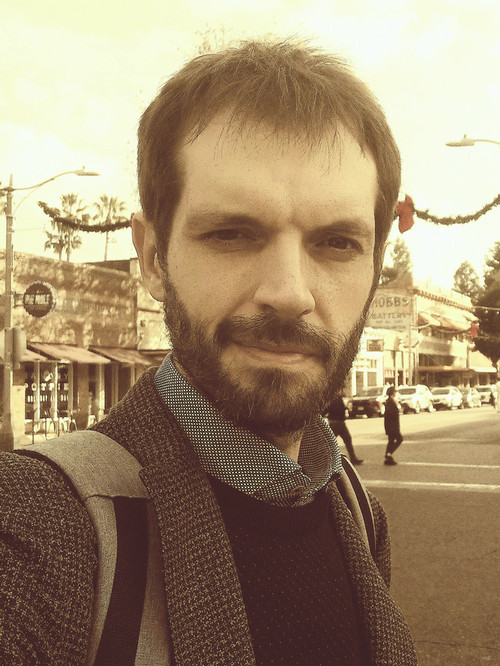 Corrado Confalonieri is the first holder of the Bernardino Telesio Endowed Professorship in Italian Studies at Chapman University. He holds two doctoral degrees, a PhD in Romance Languages and Literatures (Harvard University, 2019) and a dottorato in Italian Literature and History of Italian Language (University of Padua, 2014). He taught and did research both in Italy and in the United States, working as a Visiting Assistant Professor of Italian at Wesleyan University (2019-2020), as the Lauro de Bosis Fellow in Italian Studies at Harvard University (2020-2021), and as an Assistant Professor at the University of Parma (2021-2024).
Corrado Confalonieri is the first holder of the Bernardino Telesio Endowed Professorship in Italian Studies at Chapman University. He holds two doctoral degrees, a PhD in Romance Languages and Literatures (Harvard University, 2019) and a dottorato in Italian Literature and History of Italian Language (University of Padua, 2014). He taught and did research both in Italy and in the United States, working as a Visiting Assistant Professor of Italian at Wesleyan University (2019-2020), as the Lauro de Bosis Fellow in Italian Studies at Harvard University (2020-2021), and as an Assistant Professor at the University of Parma (2021-2024).
His publications include three monographs (most recently Torquato Tasso e il desiderio di unità. La "Gerusalemme liberata" e una nuova teoria dell'epica, Rome, Carocci, 2022, and "Queste spaziose loggie". Architettura e poetica nella tragedia italiana del Cinquecento, Naples, Loffredo, 2022) and more than thirty articles on topics spanning from the Renaissance to 20th century Italian literature. He has edited an anthology of Boiardo’s works (Boiardo, Unicopli, 2018, with J. A. Cavallo), a multidisciplinary book on teaching (Il mestiere d'insegnante, Unicopli, 2013, with A. Musetti), and, together with Nicola Catelli, he is the Co-Editor-in-chief of «Parole rubate. Rivista internazionale di studi sulla citazione/Purloined Letters. An international journal of quotation studies».
He collaborated with Jeffrey Schnapp for FuturPiaggio: Six Italian Lessons on Mobility and Modern Life and translated the book into Italian (2017). His translations also include the Italian edition of The World Beyond Europe in the Romance Epics of Boiardo and Ariosto by J.A. Cavallo (2017).
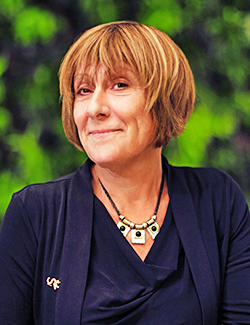
Norma Bouchard
Norma Bouchard is a professor in Wilkinson College of Arts, Humanities, and Social Sciences. She joined Chapman University after serving as Dean of the College of Arts and Sciences and Distinguished Professor of Global Studies, Drexel University; Dean of Arts and Letters at San Diego State University and Professor of European Studies; and Professor, Chair, and Associate Dean in Italian and Comparative Literary and Cultural Studies at the University of Connecticut. A graduate of Universita’ degli Studi di Torino (laurea in French and German) and Indiana University (PhD in Comparative Literature), her research and teaching interests include Mediterranean Studies, Italian American Studies, 19th and 20th century Italian Culture, the Risorgimento, Modernism and Postmodernism, Critical Theory, Theories of Nationalism, Migrant and Postcolonial Writings in Italy, and Film. She is the author of numerous articles and book-length publications. Among her book-length publications are The Politics of Culture and the Ambiguities of Interpretation: Umberto Eco’s Alternative (1998); Céline, Gadda, Beckett: Experimental Writers of the 1930s (2000); Risorgimento in Modern Italian Culture: Revisiting the 19th century Past in History, Narrative, and Cinema (2005); Reading and Writing the Mediterranean: Essays by Consolo (2006); Italian Cultural Studies: Negotiating Regional, National and Global Identities, Annali d’Italianistica 24 (2006); Southern Thought and Other Essays on the Mediterranean (with V. Ferme, 2011); Italy and the Mediterranean: Words, Sounds, and Images of the Post-Cold War Era (with V. Ferme, 2013), Italy @ 150: National Discourse at the Sesquicentennial 1861-2011 (2012), From Otium and Occupatio to Work and Labor in Italian Culture (with V. Ferme, 2014); Nation(s) and Translation (2020); The Camps of the ‘Duce’: Civilian Internment in Fascist Italy 1940-1943 (2020). She is currently working on the monograph Cultural Interventions from the Archives of History.
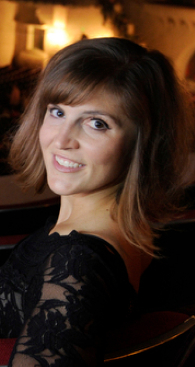
Emily Carman
Emily Carman is an associate professor of film and media studies in the Dodge College of Film and Media Arts at Chapman University, specializing in American cinema and media history and historiography. Her published books include Independent Stardom (University of Texas Press) and Hollywood and the Law (BFI press). Since 2012, she has led a travel course to Bologna, Italy that brings Chapman students to the Il Cinema Ritrovato Film Festival, a leading venue for global film restorations. The development of this course traces back to Dr. Carman's time as an intern at the Cineteca di Bologna's L'immagine Ritrovata film lab and her work for various archival and cultural institutes in Los Angeles (including the Academy Film Archive, UCLA Film and Television Archive, and the USC Warner Bros. Archives). Her published work on postwar Italian female film stardom appears in the Quarterly Review of Film and Video and she has presented her research on stardom and film history at the European Network for Cinema Studies at the Università Cattolica del Sacro Cuore, Milan.

Christine Fugate
Christine is an Assistant Professor in Documentary and Narrative Film at Chapman University. She is an award-winning producer and director whose work has been screened in theaters and broadcast on channels around the world. She has produced pilots and programming for networks including Discovery, VH1, Disney, A&E, Sundance, Travel Channel, PBS, and HBO. She has also interviewed celebrities such as Johnny Depp, Tom Hanks, Julie Andrews, and Anne Hathaway. She was named one of Showbiz's Top 100 Directors for unscripted work. Before working in unscripted, she spent years working in feature films as a Senior VP of Creative Affairs at Pacific Rim Productions and Schroeder & Hoffman Productions at Sony Pictures and as a 2nd Unit Director at Five Star Productions in Bangkok, Thailand. Christine filmed in Fiji, New Zealand, Singapore, Malaysia, Indonesia, Malawi, and Thailand. Drawing upon a diverse range of professional experiences in Italy, Christine's journey in the film industry is as rich and varied as the narratives she brings to life. During her studies at Facoltà di Magistero in Florence, she pursued research on the cultural and societal implications of the Black Plague of 1348. While working at Sony Pictures, she worked with Luciano Tovoli (The Passenger, Reversal of Fortune) on the film Single White Female. Her recent movie, Queen Moorea, has played in over twenty film festivals, including the Not Film Fest in Santarcangelo di Romagna.

Nick Gabriel
Nick Gabriel adapts important dramatic works by Italian writers for the contemporary American stage. Gabriel includes dramaturgical commentary that contextualizes original productions and illuminates each script's continuous, universal relevance. He is currently working on Luigi Pirandello's Six Characters in Search of an Author and a compilation of Commedia dell'Arte scenarios. Gabriel is also engaged in the ongoing development of his ethno-docudrama entitled I Am You, a project that explores how memory loss impacts cultural erasure. He has presented at the California Interdisciplinary Consortium of Italian Studies (CICIS) and the American Association of Teachers of Italian (AATI) conference in Catania. He currently serves on the Associate Faculty of Civica Scuola di Teatro Paolo Grassi in Milan.
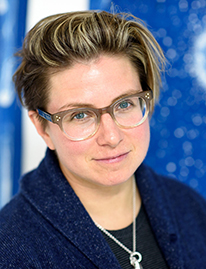
Lia Halloran
Lia Halloran is an artist who often incorporates science and nature into her projects, drawing from scientific materials, historical influences, and identities. Over the past two decades, she has engaged in a wide range of interdisciplinary collaborations with scientists and architects, including a book of poetry and paintings with Nobel Laureate Dr. Kip Thorne about the "Warped Side of the Universe" (Norton/Liveright, 2023), and she created the artwork for Janna Levin’s book "Black Hole Survival Guide" (Penguin Random House, 2021). Represented by Luis De Jesus Los Angeles, her work has been exhibited in galleries and museums both nationally and internationally, including a solo show, "Wonder Room," at SACI Gallery in Florence, Italy, inspired by the taxidermy in the Medici-founded museum, La Specola. Halloran has received numerous awards, including an Art Works Grant from the National Endowment for the Arts, the City of Los Angeles Visual Arts Fellowship, and residencies at Caltech, the Huntington Research Institute in the Visual Culture Program, and the American Museum of Natural History Astrophysics Department in New York. Her work is part of various permanent collections, including the Solomon R. Guggenheim Museum in New York, and is featured in permanent installations at the Simons Foundation Flatiron Institute Center for Computational Astrophysics in New York and the Cahill Center for Astronomy and Astrophysics at Caltech in Pasadena. She has also served on the Board of Trustees for the art and science organization Fulcrum Arts in Pasadena. Passionate about teaching, Halloran develops interdisciplinary courses that bridge art and science and integrate with her creative scholarly work. At Chapman University, she created the course "The Origins of Art and Science: The Rise and Influence of Alchemy, Anatomy, Machines, and Astronomical Discoveries in Art of the Italian Renaissance," a three-week travel course in Florence, Italy. In this course, students create studio work related to the historical and scientific context of alchemy, chemistry, modern medicine, natural categorization, and astronomy. Lia Halloran is currently the Chair of the Art Department at Chapman University, where she teaches painting and interdisciplinary courses exploring the intersections of art and science. Her work and current projects can be seen at: www.liahalloran.com
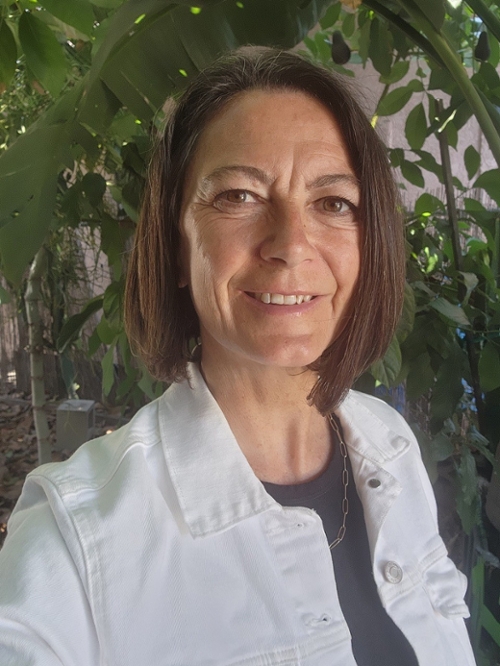
Micol Hebron
Professor Micol Hebron is a video and performance artist who has worked out of Los Angeles for the past 15 years. Originally from Northern California, Professor Hebron has studied at UCSD, the Accademia Di Belle Arti in Venice, Italy, and UCLA. She received her MFA in New Genres from UCLA in 2000. She maintains active involvement in the Los Angeles art community in numerous ways. In 1997 she founded Gallery B-12, a cooperative artist-run exhibition and lecture space in Hollywood. In 2002 and 2003 she co-produced the Full Nelson Festival, a showcase of international performance art. In 2004 she founded the LA Art Girls, a collective of 30+ women artists in the LA area. LA Art Girls is a post-graduate critique group dedicated to furthering critical discourse and inspiring continued creative practice amongst professional women artists in Los Angeles.
Professor Hebron sits on the editorial board of X-Tra magazine, and she currently writes for Art Forum, Flash Art International, and Arte Contexto. She has an active exhibition practice and has exhibited, performed and lectured throughout the US and in Europe. Her most recent solo show was at Sabina Lee Gallery in Los Angeles, and she will be performing and moderating a panel at the National Review of Live Art in Glasgow, Scotland in February of 2008. She is currently working on a book project titled "1 Image 1 Minute", which will be a selection of 1-minute narratives by various art world professionals speaking about individual photographs that are significant to them.

Shira Klein
Shira Klein is associate professor of History at Chapman University, specializing in Italian Jewish history. Her book Italy’s Jews from Emancipation to Fascism (Cambridge University Press), selected as finalist for the 2018 National Jewish Book Award, uncovers the Italian Jewish experience from the late nineteenth century to the Holocaust and postwar years. Her next book project examines Italian Jews’ role in Italy’s African empire, with a focus on Libya and Ethiopia. Klein has received support from multiple sources, including the National Endowment for the Humanities, the Barbieri Foundation for Modern Italy, and the USC Shoah Foundation. Additionally, Shira researches historical disinformation on Wikipedia, and has overseen Wikipedia editing by 147 students who have added a total of 58,000 words to Wikipedia articles, including on Italian history. At Chapman, Dr. Klein teaches Jewish history, modern Europe –including Italy, and migration history.
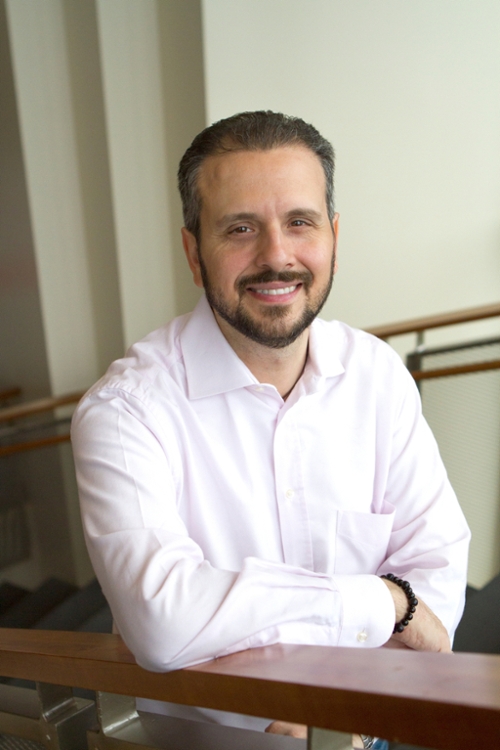
Andrea Molle
Andrea Molle, Ph.D., FRAS, is an Assistant Professor in Political science and Research Associate at the Institute for the Study of Religion, Economics, and Society at Chapman University (USA). From 2006 to 2008, he was JSPS Fellow in Social Anthropology at the Nanzan Institute for Religion and Culture (Nagoya, Japan). His current research focuses on religion, political violence, and international relations. Specific research interests related to Italy include monitoring the diffusion of militant conspiracy theories, terrorist groups, and political extremism. A second area of research pertains to analyzing Italian foreign and defense policy, focusing on non-state actors and private military companies. He has conducted research for the IRAD (Research and Analysis Institute), a branch of the Italian Ministry of Defence.
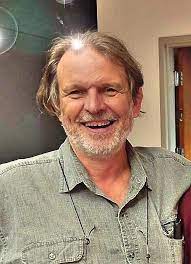
Marco Panza
Marco Panza is a Full Professor of Philosophy and Mathematics in the Schmid College of Science and Technology at Chapman University. He is an internationally recognized specialist in the History and Philosophy of Mathematics and Logic, the author of several papers and books translated into many languages, and the director of the graduate program in Mathematics, Philosophy, and Physics. Bornin Varese (Lombardia) he attended Università degli Studi di Milano Statale and received his Ph.D. from the University of Geneva, Switzerland. After serving as Assistant Professor at the University of Geneva, he became Associate Professor at the Nantes Université, France, and then a Research Professor at the CNRS, attached to the universities of Partis 7 and Paris 1, Panthéon Sorbonne. In 2000 he received the French Habilitation à Diriger Des Recherche, the higher degree in the European Academic System. He has been at Chapman since2016, first as a Presidential Fellow and then as Full Professor. He also taught at UNAM in Mexico City, Barcelona, Pompeu Fabra University. Despite his long time abroad, he conserved professional and cultural links with Italy, where he regularly returns. He collaborates with many Italian scholars in different universities in his domains of expertise; among such collaborations is the collaboration at the establishment of FilMat, the Italian network for mathematics philosophers, and he is an active member of the Italian Society of History of Mathematics (SIMS).
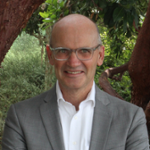
Thomas Piechota
Dr. Thomas C. Piechota is a Professor of Engineering and Environmental Science and Policy at Chapman University, Co-Director of the Grand Challenges Initiative, and Interim Dean of Fowler School of Engineering. Dr. Piechota received his B.S. in Civil Engineering in 1989 from Northern Arizona University, his M.S. in Civil and Environmental Engineering in 1993 from UCLA, and his Ph.D. in Civil and Environmental Engineering in 1997 from UCLA. Dr. Piechota has been recognized for his efforts in teaching and research in water resources, hydrology and climate change, and as an administrator where he has helped advance the research enterprise. In 2003, Dr. Piechota received a National Science Foundation CAREER Award for the project, "Improved Hydrologic Drought Forecasting Using Climate Information." From 2008-2013, Dr. Piechota was the Co-PI on a $20 million National Science Foundation funded studies on climate change impacts in Nevada. Dr. Piechota was an invited Lead Author on the Southwest Chapter of the National Climate Assessment in 2013. At Chapman, Dr. Piechota was the inaugural Vice President for Research and helped expand the research from 2016 - 2021 with notable recognition including Carnegie R2 (High Research Activity) designation in December 2018 and a tripling of research expenditures from 2016 to 2021. He is currently conducting research on the impacts of climate change on water resources and society of northern Italy. In 2022, he was co-author on the paper “Atlantic Ocean Variability and European Alps Winter Precipitation” with colleagues at the University of Trento and University of Alabama. In addition, he will be offering a travel course on “Climate, Water and Society of Northern Italy.”
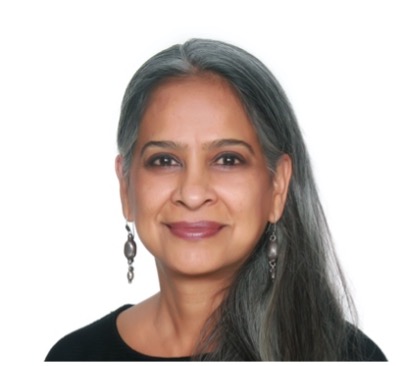
Anuradha Prakash
Anuradha Prakash is Professor of food science at Chapman University and a Fellow of the Food System Leadership Institute. She is an expert on the use of irradiation to enhance food safety and shelf-life, and on irradiation’s potential to reduce the threat posed by invasive pests and eliminate global trade barriers. Dr. Prakash teaches Food Processing, Food Product Development, and an international travel course titled Food, Diet, and Culture. Together with Italian Studies faculty, she led groups of students to Italy to explore the peninsula’s food system from farm to fork. Dr. Prakash is currently expanding her research to explore the influence of science and technology on traditional Italian methods of food production.
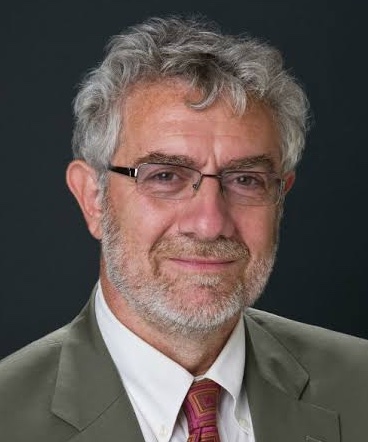
Daniele C. Struppa
Daniele C. Struppa is the Donald Bren Presidential Chair in Mathematics at Chapman University, where he also serves as the institution’s thirteenth president since 2016. Dr. Struppa graduated from the Liceo Classico “Berchet” in Milano in 1974 and received his Laurea in mathematics from the University of Milano in 1977. After completing his Ph.D. at the University of Maryland in 1981, Dr. Struppa was Assistant Professor (Ricercatore) at the University of Milano first and then at the Scuola Normale Superiore in Pisa. In 1987 he became Full Professor (Professore Ordinario) at the University of Calabria, where he served as Chairman of the Department of Mathematics. In 1989 he became a Full Professor and Founding Director of the Center for the Applications of Mathematics at George Mason University. At George Mason, Dr. Struppa served as Chairman of the Department of Mathematical Sciences from 1994 till 1996, Associate Dean for Graduate Studies from 1996 to 1997, and the Dean of the College of Arts and Sciences from 1997 to 2006, when he joined Chapman as Provost, a position he held until 2016. Dr. Struppa has received several honors, including the Bartolozzi Prize of the Italian Mathematical Union (1981), the Matsumae Foundation Medal (1987), the Cozzarelli Prize from the National Academy of Sciences (2017), and the Ellis Island Medal of Honor (2018). Dr. Struppa has published more than 200 peer reviewed articles and books. His research is mostly in the area of Hypercomplex Analysis, and of Fourier Analysis, and its applications to differential equations, and quantum mechanics. He has authored several papers on the history of Italian mathematics (with special attention for the twentieth century), and has recently written a few articles about the intersections between mathematics and special moment in Italian culture, specifically on the birth of projective geometry in the Italian Renaissance painters, the origins of modern accounting in the work of Fra Luca Pacioli, and the life and mathematical contributions of Leonardo Fibonacci.

Louise Thomas
Louise Thomas joined Chapman University as Director of Keyboard Collaborative Arts and is currently Associate Dean for Academic Affairs in the College of Performing Arts. Born in Ireland, Louise Thomas studied at Trinity College, Dublin and at the Hochschule für Musik und Theater in Hannover, Germany. As a pianist, she has concertized extensively throughout Europe, North America and Asia at significant concert venues, including in Italy, as a prize-winner both at the Annual International Music Competition and Festival in Ibla-Ragusa, Sicily and the International Piano Competition, Città di Senigallia. Louise Thomas has been on the faculty at several summer programs, including La Fabbrica in Tuscany. She is currently expanding her research in the performance of art-song to include the musicalization of Italian poetry. She regularly concertizes with violinist Elizabeth Pitcairn, who performs on the legendary “Red Mendelssohn” Stradivarius. She also appears on chamber music and contemporary music programs throughout the US and internationally.

Justin Walsh
Justin Walsh is professor of art history, archaeology, and space studies in the Department of Art. He specializes in Mediterranean archaeology, particularly of ancient intercultural encounters between Greeks and non-Greeks. He has been traveling to Italy for study and research since 1996, was a Fellow of the American Academy in Rome in 2003-2004, taught at the Intercollegiate Center for Classical Studies in Rome in 2005-2006, and has worked extensively at archaeological sites in Basilicata and Sicily. Justin has also led numerous summer study abroad programs to Rome. He wrote his doctoral dissertation on the foundation of the classical city of Morgantina (province of Enna, Sicily). This work led to several articles about how ancient consumers expressed preferences for imported goods. His teaching at Chapman covers not only ancient Etruria and Rome, but medieval Italy as well. The phenomenon of looting for art treasures at Morgantina has led him to focus on cultural heritage protection, including an innovative seminar for advanced undergraduates in Chapman’s art history program, and consulting with US law enforcement and museums on the repatriation of Italian cultural objects. Most recently, he has taken on a new role as a global leader in the field of space archaeology, serving as co-PI of the multiple award-winning International Space Station Archaeological Project. This work has led to connections with Italian astronauts and major Italian space companies. In 2024, Justin was named as a member of the Explorers Club 50 class of 2024, one of “50 remarkable explorers changing the world and extending the meaning of exploration.” He has also been a Fulbright Fellow and Benjamin Meaker Distinguished Visiting Professor at the University of Bristol.
 Corrado Confalonieri is the first holder of the Bernardino Telesio Endowed Professorship in Italian Studies at Chapman University. He holds two doctoral degrees, a PhD in Romance Languages and Literatures (Harvard University, 2019) and a dottorato in Italian Literature and History of Italian Language (University of Padua, 2014). He taught and did research both in Italy and in the United States, working as a Visiting Assistant Professor of Italian at Wesleyan University (2019-2020), as the Lauro de Bosis Fellow in Italian Studies at Harvard University (2020-2021), and as an Assistant Professor at the University of Parma (2021-2024).
Corrado Confalonieri is the first holder of the Bernardino Telesio Endowed Professorship in Italian Studies at Chapman University. He holds two doctoral degrees, a PhD in Romance Languages and Literatures (Harvard University, 2019) and a dottorato in Italian Literature and History of Italian Language (University of Padua, 2014). He taught and did research both in Italy and in the United States, working as a Visiting Assistant Professor of Italian at Wesleyan University (2019-2020), as the Lauro de Bosis Fellow in Italian Studies at Harvard University (2020-2021), and as an Assistant Professor at the University of Parma (2021-2024).














